
A Juris Doctor, Doctor of Jurisprudence, or Doctor of Law (JD) is a graduate-entry professional degree that primarily prepares individuals to practice law. In the United States, it is the only qualifying law degree, while other jurisdictions, such as Australia, Canada, and Hong Kong, offer both JD degrees and undergraduate qualifying law degrees.

A master's degree is a postgraduate academic degree awarded by universities or colleges upon completion of a course of study demonstrating mastery or a high-order overview of a specific field of study or area of professional practice. A master's degree normally requires previous study at the bachelor's level, either as a separate degree or as part of an integrated course. Within the area studied, master's graduates are expected to possess advanced knowledge of a specialized body of theoretical and applied topics; high order skills in analysis, critical evaluation, or professional application; and the ability to solve complex problems and think rigorously and independently.
Bachelor of Civil Law is the name of various degrees in law conferred by English-language universities. The BCL originated as a postgraduate degree in the universities of Oxford and Cambridge; at Oxford, the BCL continues to be the primary postgraduate taught course in law. It is also taught as an undergraduate degree in other countries. The reference to civil law was not originally in contradistinction to common law, but to canon law, although it is true that common law was not taught in the civil law faculties in either university until at least the second half of the 18th century. However, some universities in English-speaking countries use the degree in the former sense.
A Bachelor of Laws is an undergraduate law degree offered in most common law countries as the primary law degree and serves as the first professional qualification for legal practitioners. This degree requires the study of core legal subjects and jurisprudence to provide a comprehensive understanding of the legal system and its function. The LLB curriculum is designed to impart a thorough knowledge of legal principles, legal research skills, and a sound understanding of the roles and responsibilities of lawyers within society. This degree is often a prerequisite for taking bar exams or qualifying as a practicing lawyer, depending on the jurisdiction. Additionally, the LLB program also serves as a foundation for further legal education, such as a Master of Laws (LLM) or other postgraduate studies in law.
Degree abbreviations are used as an alternative way to specify an academic degree instead of spelling out the title in full, such as in reference books such as Who's Who and on business cards. Many degree titles have more than one possible abbreviation, with the abbreviation used varying between different universities. In the UK it is normal not to punctuate abbreviations for degrees with full stops, although this is done at some universities.
The system of academic degrees at the University of Oxford can be confusing. This is not merely because many degree titles date from the Middle Ages, but also because many changes have been haphazardly introduced in recent years. For example, the (medieval) BD, BM, BCL, etc. are postgraduate degrees, while the (modern) MPhys, MEng, etc. are integrated master's degrees, requiring three years of undergraduate study before the postgraduate year.
A Master of Laws is an advanced postgraduate academic degree, pursued by those either holding an undergraduate academic law degree, a professional law degree, or an undergraduate degree in a related subject. In most jurisdictions, the LL.M. is the advanced professional degree for those usually already admitted into legal practice.
A law degree is an academic degree conferred for studies in law. Such degrees are generally preparation for legal careers, but while their names can be similar, each country's law degrees differ in terms of legal training and the types of legal practice they allow. Generally, law degrees include the Bachelor of Laws (LLB), the Master of Laws (LLM), and the Doctor of Laws, among others. These degrees are usually obtained through a combination of coursework, research, and practical experiences, such as internships or clinical legal education. Law degrees are recognized as a necessary step towards becoming a licensed lawyer in many jurisdictions, and they also provide a foundation for various other career paths such as academia, policy, or consultancy.
Bachelor of Philosophy is the title of an academic degree that usually involves considerable research, either through a thesis or supervised research projects. Unlike many other bachelor's degrees, the BPhil is typically a postgraduate degree awarded to individuals who have already completed a traditional undergraduate degree.
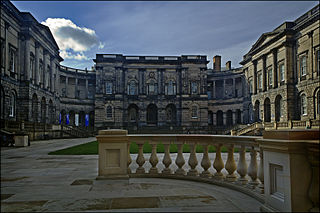
Edinburgh Law School, founded in 1707, is a school within the University of Edinburgh, Scotland, United Kingdom dedicated to research and teaching in law. It is located in the historic Old College, the original site of the University. Two of the twelve currently sitting Supreme Court of the United Kingdom justices are graduates of Edinburgh, including the current President and Deputy President.

Saïd Business School is the business school of the University of Oxford. The school is a provider of management education.

The Royal College of Science and Technology was a higher education college that existed in Glasgow, Scotland between 1887 and 1964. Tracing its history back to the Andersonian Institute, it is the direct predecessor institution of the University of Strathclyde. Its main building on George Street now serves as one of the major academic and administration buildings of the University of Strathclyde.
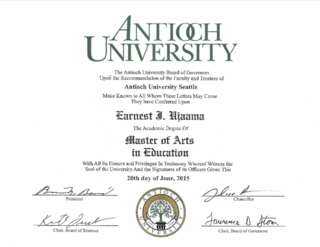
A Master of Arts is the holder of a master's degree awarded by universities in many countries. The degree is usually contrasted with that of Master of Science. Those admitted to the degree have typically studied subjects within the scope of the humanities and social sciences, such as history, literature, languages, linguistics, public administration, political science, communication studies, law or diplomacy; however, different universities have different conventions and may also offer the degree for fields typically considered within the natural sciences and mathematics. The degree can be conferred in respect of completing courses and passing examinations, research, or a combination of the two.
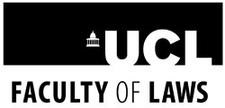
The UCL Faculty of Laws is the law school of University College London (UCL), itself part of the federal University of London. It is one of UCL's 11 constituent faculties and is based in London, United Kingdom. It is one of the world's leading law schools, and ranked 6th globally in the 2022 Times Higher Education World University Rankings for Law.
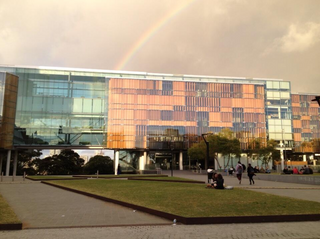
Sydney Law School is the law school at the University of Sydney, Australia's oldest university. Sydney Law School began a full program of legal instruction in 1890 following the appointment of its first dean, having offered legal examinations since 1855.
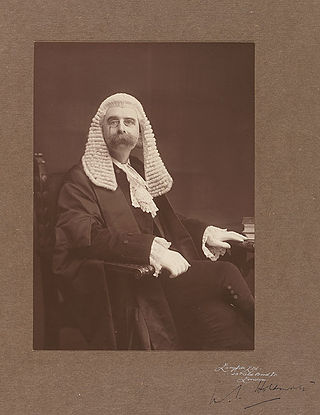
Sir William Searle Holdsworth was an English legal historian and Vinerian Professor of English Law at Oxford University, amongst whose works is the 17-volume History of English Law.
The Chinese University of Hong Kong Faculty of Law is a law school in Hong Kong.

Durham Law School is the law school of Durham University in Durham, England. In 2022, Durham Law was ranked 5th in the UK in a league table which averaged the rankings of the Complete University Guide, The Guardian and the Times University League Table. Durham Law School is ranked 42nd in the world for law in the 2023 Times Higher Education ranking and 46th in the world for law by the 2023 QS ranking.

The Dickson Poon School of Law is the law school of King's College London, itself part of the federal University of London, and serves as one of the nine schools of study within the college. It is situated on the Strand in the East Wing of Somerset House, in close proximity to the Royal Courts of Justice and the four Inns of Court in the heart of London's legal quarter. Among the most prestigious and selective law schools in the world, is currently ranked in the global top 15 and fifth in both Europe and the UK.
A MJur is an academic degree in law awarded by some universities.






















